
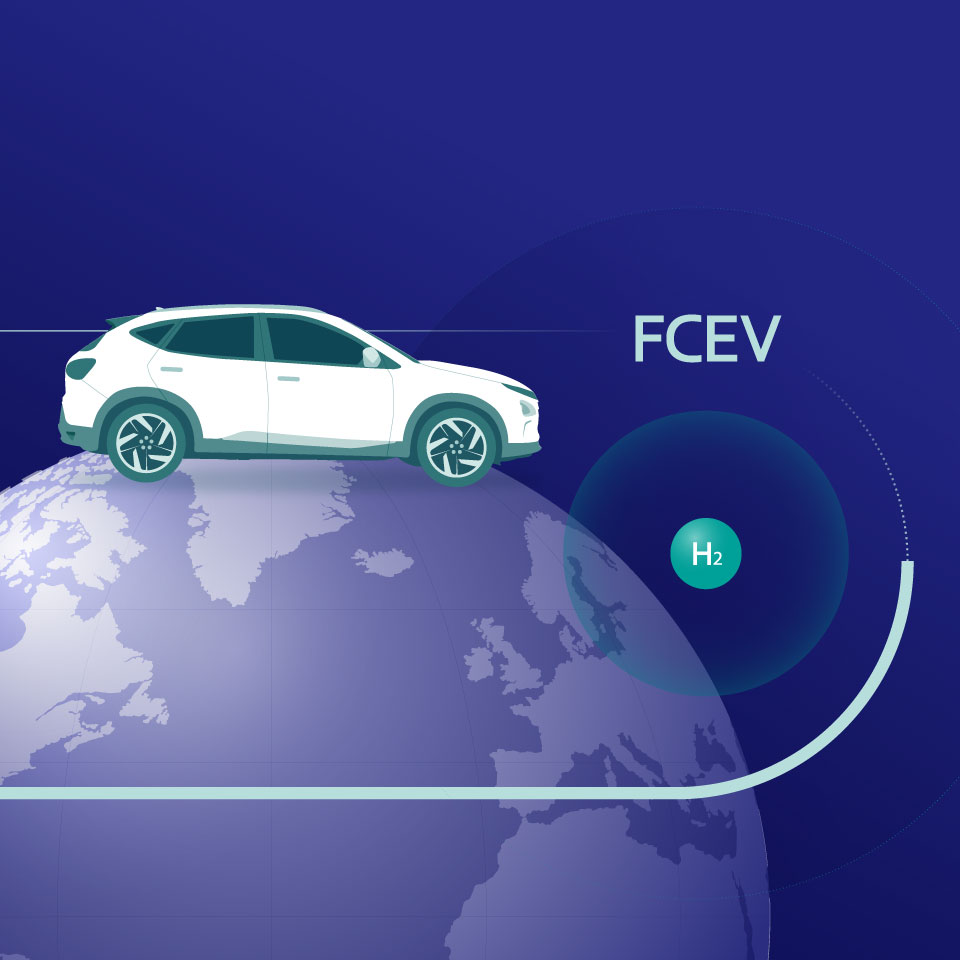


2020.08.11 Hyundai Motor Company
The Earth's average temperature is increasing every year because we have used fossil fuel without thinking hard enough. 'The Korea Climate Change Assessment Report 2020' published after the recent joint research conducted by the Korea Meteorological Administration and the Ministry of Environment predicted that Korea's air temperature at the end of the 21st century will increase by 2.9 degrees - to 4.7 degrees Celsius - if we fail to decrease greenhouse gas emission level.
Korea is not the only one who thinks something needs to be done to deal with global warming. In the 21st U.N. Climate Change Agreement held in Paris back in December 2015, 195 countries in the world agreed to gradually reduce greenhouse gas emissions to keep an eye on the average temperature of this planet, and many countries are working to find other green energy sources to replace carbon energy. And hydrogen could be our golden boy since its supply is endless and only emits pure water.
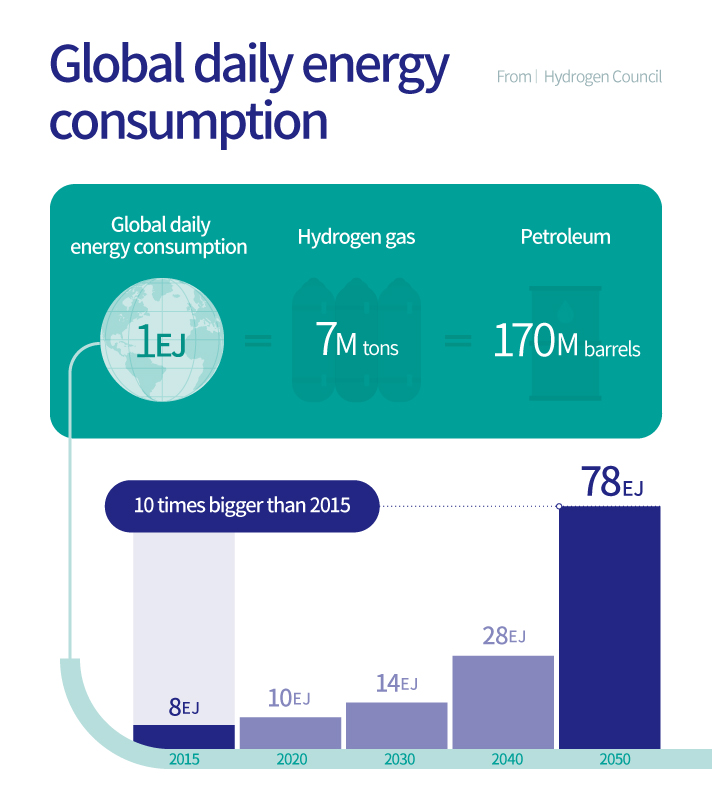
There are two green candidates that the world is paying its attention to; one is renewable energy that uses nature such as solar or wind power to generate electricity, and the other is hydrogen energy that we produce through a chemical reaction to release hydrogen. What's notable is that hydrogen, which takes up more than 90 percent of the universe's molecules, is an infinite energy source, and this means it can be produced as much as we want. Emitting only water is another strong advantage hydrogen possesses. It also can be easily stored in liquid or gas form, and just as easily transported. Another advantage of hydrogen is that it backs renewable energy up when it fails to supply due to the unpredictable climate conditions.
According to the Hydrogen Council, global hydrogen consumption will increase to about 546 million tons by 2050. This is to replace 13.26 billion barrels of petroleum, which can generate about 78EJ. With hydrogen energy taking up about 18 percent of the world's energy demand, we can assume that our society relying on carbon energy will gradually change into a hydrogen society.
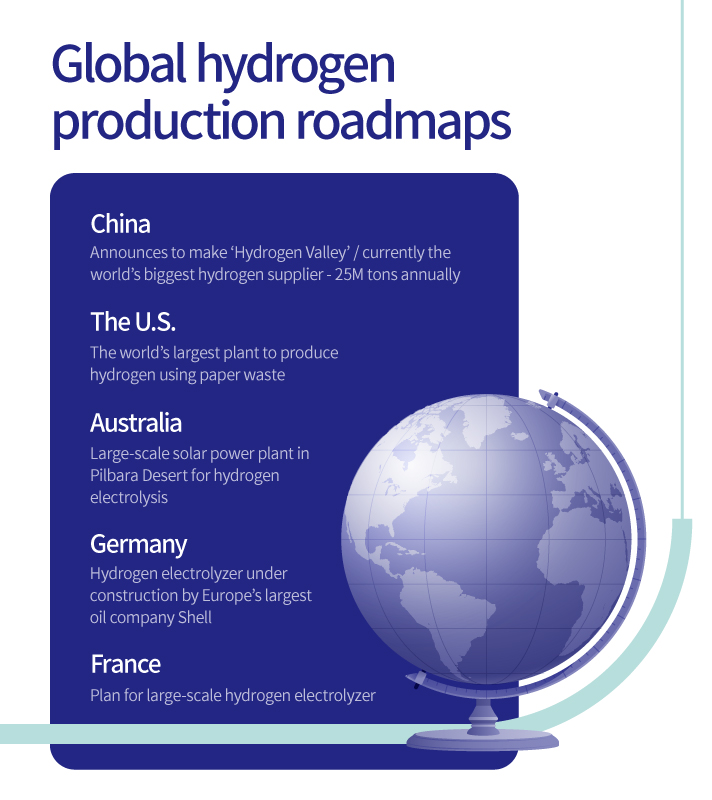
Currently, most hydrogen is produced through an extraction method, which uses natural gas composed of carbon and hydrogen. China, the world's largest hydrogen supplier, produces hydrogen mainly through this extraction method. This is cheaper than any other way but indeed emits greenhouse gas during the process. For this reason, countries around the world are investing in 'green hydrogen' that should emit zero greenhouse gas.
The 'greenest' way to produce hydrogen would be electrolysis. This is to use electricity from renewable energy - such as wind or solar power - to split water into hydrogen and oxygen. Countries such as Australia, Germany, and France are introducing this approach, and speaking of Australia, they are installing solar panels in the vast stretch of the Pilbara desert in the west of the country, and building an electrolysis plant for hydrogen production at industrial scale.
The U.S. is building the largest facility in the world that produces hydrogen by recycling plastic or waste paper. Using the biogas obtained while heating recycled paper and plastic at high temperatures, say, 3,870 degrees Celsius, hydrogen can be extracted from the process. This is well known to be cost-efficient and emit less greenhouse gas. It would even reduce environmental pollution because it uses waste in landfills. In the meantime, Korea, the U.S., Japan, and Germany are trying to find other green ways to produce hydrogen, using microorganisms to name one.
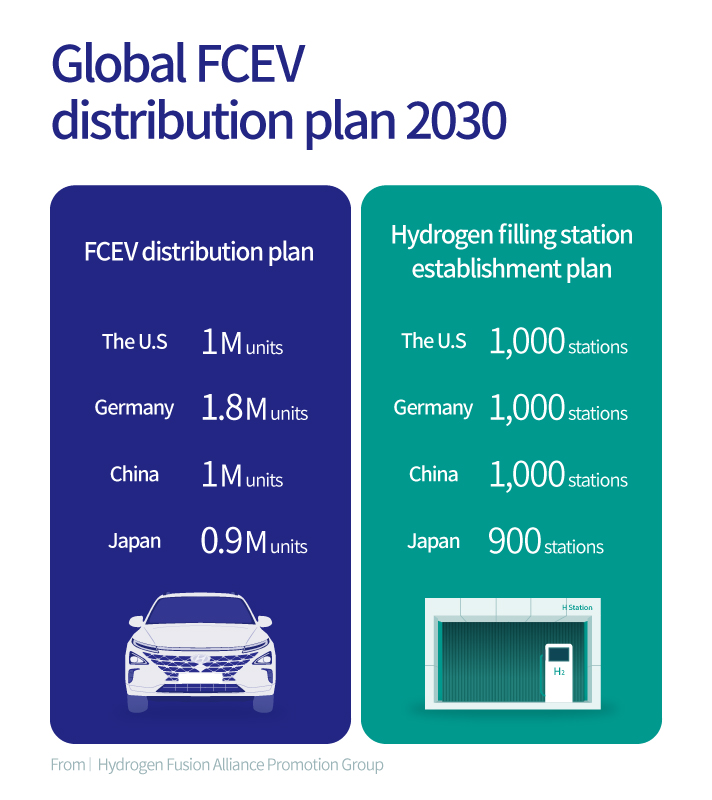
Among power generation, buildings, and industries, the most likely way to utilize hydrogen energy would be mobility. This is because FCEVs are estimated to catalyze hydrogen society. Of course, hydrogen society will only achieved under certain conditions. We need to develop technologies related to fuel cell systems to generate electricity from hydrogen, and FCEVs require hydrogen charging stations everywhere. We also need infrastructure to deliver hydrogen fuel to refilling stations. In other words, we can only say we are closer to hydrogen society as long as we have enough hydrogen-related infrastructures, hence FCEVs.
Major advanced countries are working on building plans to supply FCEVs, and they are executing their plans fast. The U.S., Germany, China, and Japan are planning to supply 900,000 to 1.8 million FCEVs and increase the number of hydrogen charging stations to a thousand by 2030. So as to achieve this goal, most of the governments are giving subsidies for purchasing FCEVs, or reducing taxes. They are also allocating public expenditure for building hydrogen refilling stations.
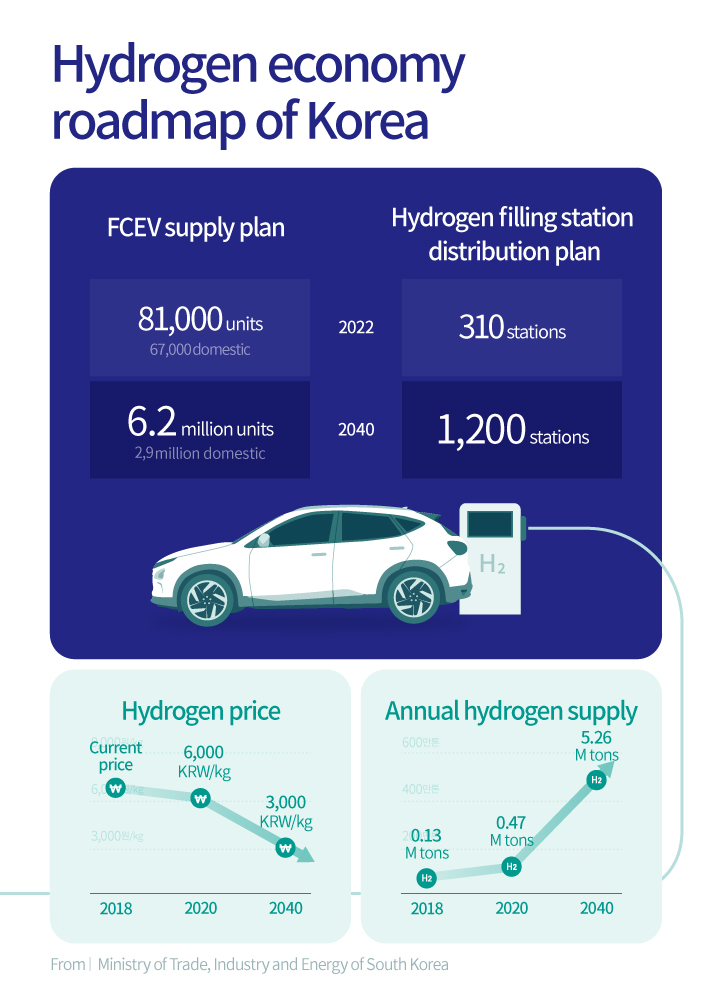
South Korean government is also initiating a plan to enter a hydrogen society. Hyundai Motor Company mass-producing FCEV for the first time in the world and applying fuel cell system to its commercial vehicles, is making Korea lead the industry. To boost the FCEV market, the government is trying to increase the supply of FCEVs and decrease the hydrogen production cost through pumping up more hydrogen at the same time. Moreover, the government has initiated Hydrogen Council on July 1 to actively achieve these goals.
According to the committee, mid-sized hydrogen power plants in Gyeongnam, Honam, Jungbu, and Gangwon will supply enough hydrogen fuel, along with 40 small-sized hydrogen plants. The government plans to develop materials and equipment for hydrogen mobilities, fuel cells, liquified hydrogen, refilling stations, and electrolyzers. And the government will support hydrogen-related corporations to do so.
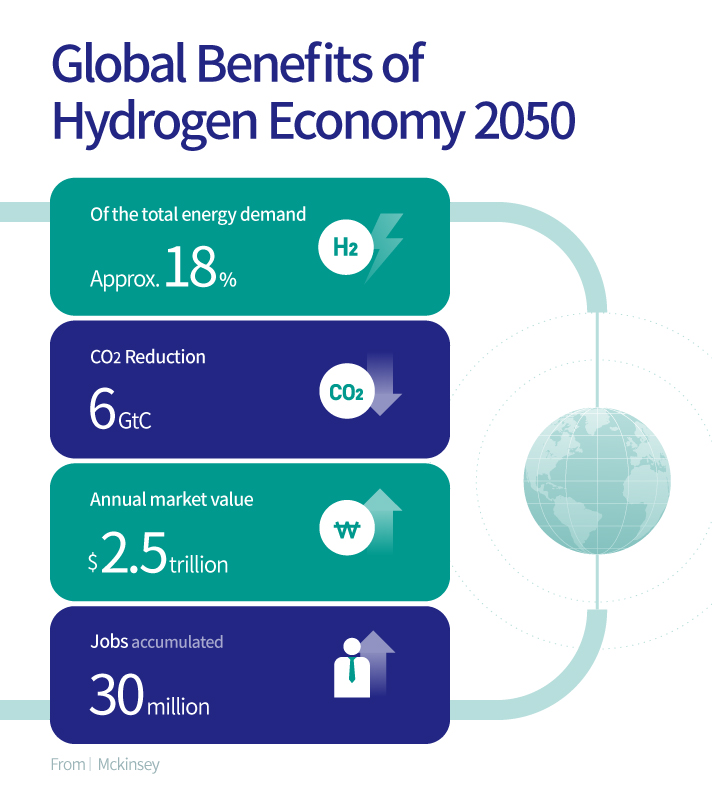
Many countries are working on entering hydrogen society because they believe hydrogen will lead them to sustainable growth through its eco-friendliness. According to Mckinsey, producing hydrogen would reduce 6 gigatons of greenhouse gas by 2050. They also envisioned a market for hydrogen ecosystem with revenues of $2.5 trillion, and jobs for more than 30 million people globally. Hydrogen society will indeed propel the global growth.
Technologies related to storing, transporting, and utilizing hydrogen energy are rapidly growing through a number of researches and investments. This means that the world is shifting its energy paradigm to a greener one, and is gradually getting closer to a green society without needing to worry about pollution.